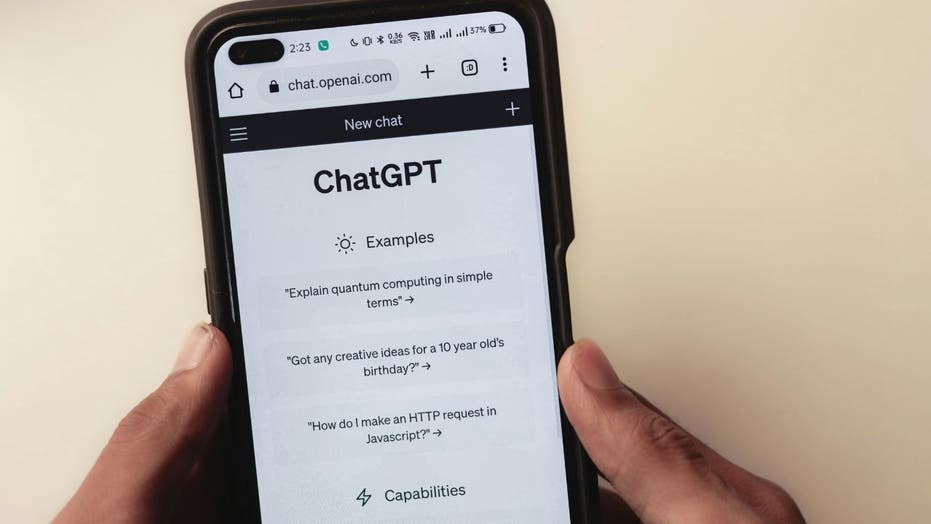- by foxnews
- 01 Jun 2025
Tesla doxxing attacks wrongly target nonowners across America
Tech expert Kurt "CyberGuy" Knutsson reports that Tesla owners are facing threats as hackers weaponize leaked data. Are you next?
- by foxnews
- 11 May 2025
- in technology

The recent surge of attacks on Tesla owners, dealerships and charging stations has morphed into a broader campaign of intimidation, fueled by weaponized personal data. But the fallout isn't limited to Tesla owners alone.
Sites like "Dogequest" have published names, addresses and phone numbers supposedly belonging to Tesla owners, yet many victims never owned a Tesla or sold theirs years ago. Some were misidentified due to errors in public records or outdated databases, turning ordinary people into targets for harassment and threats. The site's operators have even demanded proof of sale from anyone seeking removal, putting the burden on innocent people to clear their names.
As the DOJ and FBI label these attacks as domestic terrorism and ramp up investigations, the chilling reality is that anyone, even those only suspected of owning a Tesla, can find themselves exposed and at risk.
On March 18, 2025, a hacker group launched "Dogequest," a website featuring a searchable map of supposed Tesla owners and employees. The site didn't just list dealerships and charging stations; it exposed names, home addresses, phone numbers and emails, sometimes even in real time. The twist? Many of the people listed never owned a Tesla at all.
The data fueling this attack came from public vehicle registration records and third-party databases, notorious for their inaccuracies. Some victims had sold their Teslas years ago. Others were never owners, just mistakenly linked by a typo, a recycled phone number or a database error. Yet they found themselves on a digital hit list, with their privacy and safety at risk.
This isn't just an online problem. Firebombings at showrooms, bullets through dealership windows and threats to families have all been linked to these doxxing campaigns. Law enforcement, including the DOJ, now calls it domestic terrorism. And because the data is so often wrong, anyone could be next, regardless of whether you've ever set foot in a Tesla.
If you think you're safe because you don't own a Tesla, think again. The same flawed data sources that misidentified Tesla owners exist for countless other products, memberships and affiliations. Today, it's electric cars; tomorrow, it could be political donors, healthcare workers or anyone else whose data is bought and sold.
Whether your personal data was exposed in a breach, leaked by someone with inside access or scraped from people-finder sites, you're at risk, not just if you own a Tesla, but even if you're misidentified. Here's how to reduce your exposure and protect yourself from becoming the next target of a doxxing attack.
To help prevent your data from ending up in a breach or leak:
Also known as people-search sites, these data brokers profit by compiling detailed personal profiles that are fully searchable and available to anyone for a small fee. They're among the most dangerous sources of exposed personal information online. Fortunately, they're also some of the easiest to tackle, especially with the help of a personal data removal service.
While no service can guarantee complete data erasure from the internet, using a trusted removal service is a smart way to automate and maintain ongoing protection from hundreds of data-hungry sites over time.
While removing your data from brokers and minimizing online footprints are essential first steps, true safety in this new era of weaponized information also requires securing our digital infrastructure against both physical and virtual threats. Here are a few steps you can take to protect your data.
Cabin cam caution: Disable Cabin Camera Recording under Data Sharing unless essential. While Tesla claims footage isn't linked to identities by default, third-party app vulnerabilities could expose this data. Newer Teslas process cabin cam footage locally, but legacy models may still use cloud backups, so check your software version.
The reality is unsettling but not hopeless, and while the threats of our hyper-connected world can feel overwhelming, you don't have to just hope you won't be targeted. You can take control by arming yourself with knowledge, using the right tools, building smart habits like checking your digital footprint, using removal tools and staying alert to new threats because the attackers are organized, and it's time we are, too.
Follow Kurt on his social channels:
Answers to the most-asked CyberGuy questions:
New from Kurt:
Copyright 2025 CyberGuy.com. All rights reserved.
- by foxnews
- descember 09, 2016
Beach days benefit mental health and well-being as visits provide 'sea therapy'
Discover the benefits of sea therapy as experts highlight how beach visits can boost mental well-being, reduce stress and improve sleep through mindfulness and relaxation.
read more





